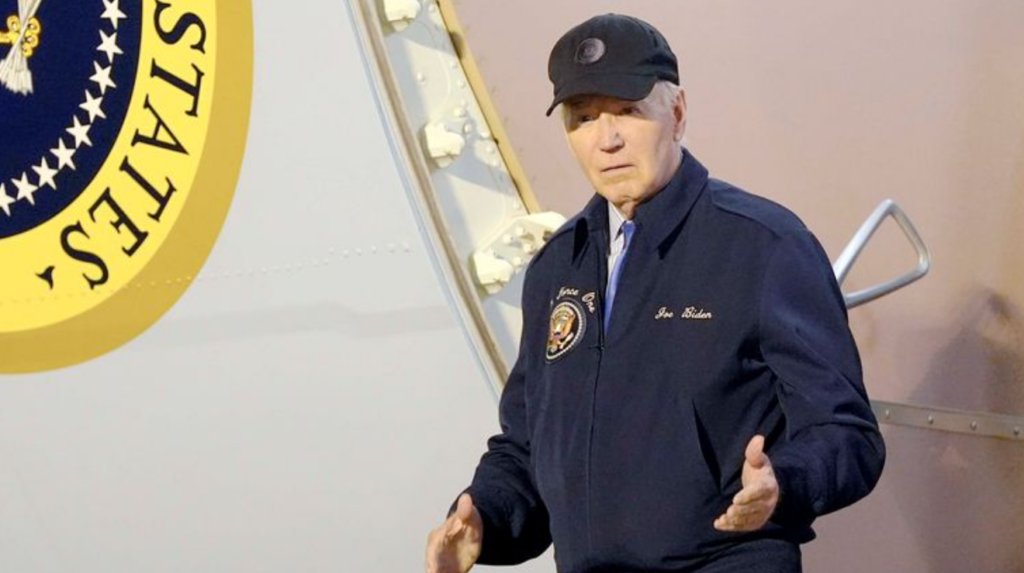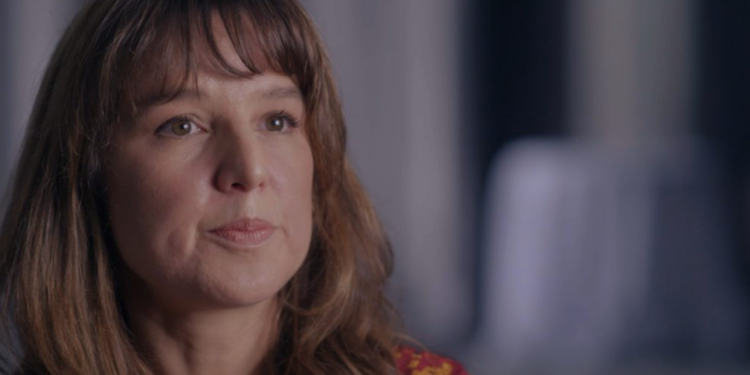Leaked emails have revealed how the New York Times sought to discredit a top scientific review that found no evidence masks work because it came to the ‘wrong’ conclusion. Paul D. Thacker, who obtained the emails from the Cochrane whistleblower and via FOI requests, has written about the scandal in UnHerd.
Amid the storm of U.S. election headlines in recent weeks, a snippet of news began bubbling up on social media that, only a few years ago, would have whipped up a frenzied media hurricane. President Biden had tested positive for Covid and videos posted on X showed him boarding and exiting Airforce One, but without a mask.
“Listen to the scientists, support masks,” Biden said at a campaign rally, four years ago, berating Trump for not wearing a mask after he (Trump) had caught Covid. “Support a mask mandate nationwide,” Biden thundered to cheers and adulation. His campaign message captured a ‘follow the science’ sentiment among Left-leaning American voters who derided anyone questioning mask effectiveness with the label “anti-mask”. This, despite a smattering of articles in Scientific American, Wired, New York Magazine and the Atlantic reporting that scientific studies found masks didn’t seem to stop viruses.
The debate over mask effectiveness took an odd turn last year when ardent mask advocate, Zeynep Tufekci, wrote a New York Times essay claiming “the science is clear that masks work”. Tufekci’s piece denigrated and belittled a scientific review by the prestigious medical nonprofit, Cochrane, for concluding that the evidence is “uncertain”.
Shortly after Tufekci published her essay, Cochrane’s Editor-in-Chief, Karla Soares-Weiser, dashed out a statement to assure mask advocates that Cochrane would update the review’s language. Cochrane reviews are widely considered as the ‘gold standard’ for high‐quality information to inform medicine, and their process is laborious, with multiple rounds of internal checks and expert peer review. Having Cochrane’s head make a personal pronouncement about a published review is unprecedented — akin to having the Executive Editor of the New York Times write an essay expressing personal opinions about one of the paper’s own deep-dive investigations.
The incident also marked an odd point in the timeline of mask use. Before the pandemic, few, if any, prominent organisations promoted masks to stop influenza or other respiratory viruses. As the WHO concluded in its 2019 pandemic preparedness plan: “There have been a number of high-quality randomised controlled trials (RCTs) demonstrating that personal protective measures such as hand hygiene and face masks have, at best, a small effect on influenza transmission.” So, it was not surprising that both Tufekci’s claims “masks work” and Karla Soares-Weiser’s allegations that something was wrong with the Cochrane mask review were later found themselves to have no real evidence.
Earlier this year, Soares-Weiser issued another statement, this time explaining the mask review was fine and no changes would be made. Despite the 180, damage to Cochrane’s mask review had already been done. Google sends you straight to Tufekci’s New York Times essay alleging problems in the Cochrane review.
But why did Soares-Weiser change her mind?
I have discovered, through hundreds of emails provided to me by freedom of information requests and a Cochrane whistleblower, that Tufekci bumped Soares-Weiser into making the statement against Cochrane’s own mask review — a move that landed like a grenade inside the organisation.
While Soares-Weiser runs Cochrane, scientists with expertise in each specific subject matter write and edit the reviews. When she rushed out her statement complaining about the mask review, the review authors charged that Cochrane had thrown science under the bus by working with “controversial writer” Zeynep Tufekci; meanwhile, the Editor of the mask review reminded Cochrane’s leadership that changes were only being considered because of “intense media coverage and criticism”, not because there were any problems in the review’s science. “I had a very challenging meeting with the [governing board] yesterday,” Soares-Weiser wrote a few days afterwards. “I am holding on, stressed, but okay.”
But the story doesn’t end there. Because the attack by Soares-Weiser and Cochrane’s leadership on their own mask review is illustrative of how media and political pressure undermined and suppressed inconvenient scientific conclusions during the pandemic — and are still attempting to do so. The incident also raises questions about media ethics and whether Cochrane’s leadership is still fit for purpose.
Worth reading in full.
















To join in with the discussion please make a donation to The Daily Sceptic.
Profanity and abuse will be removed and may lead to a permanent ban.
I wonder whose idea it was to start with – or maybe a few different people arrived at the same conclusion more or less at the same time: masks were a stroke of genius as a major enhancement to the “covid” pantomime/horrorshow.
It was China initially and everything they did everyone else copied, especially when the WHO and Gates endorsed what the CCP had done and claimed that they had done a really good job. The CCP used:
Lockdowns, including welding people into their homes or the reverse, dragging them out.
Masks
Mass testing
Emergency hospitals built in days
Mass graves built in days using JCBs
Interestingly China only locked down one province, Wuhan, while the rest of the country and many industries remained in business. This didn’t seem odd to our highly intelligent people in the MSM, considering that the Virus had travelled round the World but miraculously not the rest of China. No doubt the CCP, and their puppets in the WHO, were surprised and pleased with how well they had managed to cripple the world so easily. Perhaps just to see what else they could do they introduced the anal swab test for Covid claiming it was better.
https://www.bbc.co.uk/news/world-asia-56245404
Covid: Japan asks China to stop anal tests on its citizens
https://www.youtube.com/watch?v=bNHFw5X53Es
China makes anal swab COVID tests mandatory for foreign travellers; draws ire from Japan
More here.
https://www.youtube.com/results?search_query=Covid+Anal+tests+viral+video
Yes it was one of many literally incredible things to me that people didn’t notice or mention that the Chinese “lockdown” was highly local and as you say how could “Covid” have spread globally bit nowhere else in China. Utterly mad.
Yawn! The template for these shenanigans was created, or even pre-dated, Climategate. It was routine for any publisher that published or was about to publish any article that cast the slightest doubt on the Anthropogenic Global Warming hypothesis to find themselves on the sharp end of an email demanding retraction. Manipulation of the press worked in the 1930s, the 1950s, the 2000s and still in the 2020s. In effect, it has long existed in a symbiotic relationship with sceptical challenges. Some of this process was identified in a book “Panic Attacks” by Bartholomew and Evans around 2010; it was a revelation for me. The book sketched out the history of how politicians collude with the media of the day to manipulate public attitudes by deploying “Fear Bombs” to create alarm in the populace and then pretending to lead it to safety, typically by way of increased taxation or decreased personal freedom. The principle remains unchanging; only the technology and details change. In the 2010s it was e-mails; in the 2020s it is social media “influencers”, with a bigger sprinkling of compliant academics.
What reasons could we think of for a searcher after truth whose career depended on it descend to following orders.
Fear?
Money?
Personal political commitment?
As Upton Sinclair said many, many years ago: “It is difficult to get someone to understand something when his salary depends upon him not understanding it”
I don’t see how this frequently repeated aphorism is relevant here. Soares-Weser would surely have furthered her career at Cochrane more effectively by standing up for the conclusions in the review.
As far as I’m aware, nobody has ever asked Whitty why, just two weeks after saying they were worthless, he advocated the mask mandate?
I can’t escape the feeling, that the nudge unit wanted a visible ‘tell’ as to how many people were doing what they were told… the whole thing was more to seize the opportunity of finding out how to manipulate people in a live experiment, than it was about protecting granny.
Agreed, but there were lots of supposedly intelligent and well educated people who actually believed in it, or else they didn’t and just did as they were told. Either way, their reputation has gone down a bit.
Whitty is weak, a man who cares more about position and salary than he does about truth, integrity and people.
‘The incident also raises questions about media ethics……..’
You mean that there are still questions? I would have thought that issue had been resolved effectively in concluding that the MSM has no ethics. Or at least no good ones.
In Australia, Phillip Altman reports on his recent visit to a medical centre:
Seriously?!?!?!
How has this ridiculous mask idea ever had traction?! And been adopted so wholeheartedly by the wretched medical ‘profession’.
Here’s the news people…
When you’re sitting in a room with other people, you’re all breathing in and out the same air…it’s recycling among all the people. It’s been happening all our lives.
Some mask or bit of cloth across your face isn’t going to protect you from the recycled air. If it did, it would have to suffocate you to prevent you breathing in the recycled air.
It’s completely mad people have fallen for this mask idea, including academics such as Adrian Esterman in the University of South Australia, who would have had us all permanently masked/muzzled if he had his way.
It’s totally unnatural for humans or any animal to be masked and impair natural breathing, complete insanity.
What’s the real motive behind this sinister fetish to terrorise and muzzle the people?
Control. Please read the dystopian book COVID-19: The Great Reset. Borrow a copy rather than give the WEF more money.
The other give away was how used masks were treated. Almost without exception across the planet there were no instructions to dispose of a used ‘contaminated’ mask carefully and there were no bio hazard bins for them. There were no instructions for the men that were either collecting household refuse or emptying city bins. There were also no instructions on how to put them on and neither were there instructions not to touch them. In other words it is blatantly evident they were just for theatre, but you know this already.
The following video shows Stephen E. Petty, (P.E., C.I.H, C.S.P. EES Group, Inc.) speaking to the Senate Health and Human Services on the ineffectiveness of masks. The MSM have ignored this important hearing.
https://www.youtube.com/watch?v=aEwi_NUpk0k
Stephen Petty, Expert, Industrial Hygienist gives solutions far more effective than masks
And this, an even more forceful criticism of masks:
https://www.youtube.com/watch?v=7kaC2fRfL9A
Kristen Meghan – Senior Industrial Hygienist – PPE Expert and more
Oh how I remember walking around the shops as the only one not dressed as a bank robber. The stares. The arguments. The confrontations. Day after week after month. I never gave in, and nowadays I look back as a proud man, unlike the fucktards I was confronted by during those times.